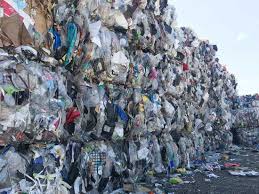Plastic recycling has become a crucial part of waste materials managing in our present day planet. Since we grapple using the environmental effect of plastic toxins, recycling offers a encouraging answer. Here’s all you need to find out about plastic recycling:
1. Kinds of Plastic: Its not all plastics are the same. These are sorted based upon their resin recognition code, generally found on the base of storage units. These regulations range between #1 to #7, each representing some other form of plastic. Dog (Top) and HDPE (#2) are the most often reused plastics, and some like Pvc material (#3) and PS (#6) are less commonly re-cycled because of their make up.
2. Assortment: Plastic recycling begins with assortment. This is often through curbside recycling courses, decline-off centres, or specialized assortment endeavours. When accumulated, plastics are sorted depending on their resin kind to enhance the recycling method.
3. Selecting and Handling: Following selection, plastics are categorized into specific types. Advanced working technological innovation like infra-red detectors and manual sorting aid in this method. Once categorized, plastics are cleaned out to remove any contaminants like foods residue or brands. Then, they may be shredded into tiny sections and dissolved to form pellets.
4. Reprocessing: The pellets obtained from melted plastic recycling can be used to create various items, from packaging supplies to textiles. This reprocessing point is essential in conclusion the loop in the plastic lifecycle, reducing the demand for virgin plastic generation and conserving solutions.
5. Challenges: In spite of its value, plastic recycling encounters a number of difficulties. Toxic contamination, lack of facilities, and constrained industry interest in reprocessed plastics are among the essential difficulties. Training and awareness about appropriate recycling practices are necessary to minimize these difficulties.
6. Ecological Affect: Recycling plastic provides many ecological benefits. It reduces the quantity of plastic waste sent to trash dumps or incinerators, conserves power in comparison to making new plastic, and will help minimize the harmful negative effects of plastic pollution on ecosystems and wildlife.
7. Significance of Client Participation: Shoppers enjoy a pivotal part in the success of plastic recycling. Correctly working recyclables, rinsing boxes well before disposal, and preventing non-recyclable plastics can significantly improve the efficiency of recycling applications.
8. Innovations: Continuous development in recycling technological innovation and supplies is driving a car the evolution of plastic recycling. From naturally degradable plastics to compound recycling processes, research workers and businesses are checking out new avenues to make plastic recycling more potent and sustainable.
To summarize, plastic recycling is a fundamental part of sustainable waste materials administration attempts. By understanding the procedure and actively engaged in recycling endeavours, men and women can give rise to decreasing plastic toxins and conserving beneficial helpful information for generations to come.



